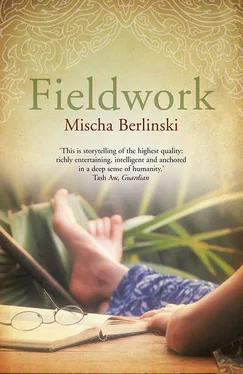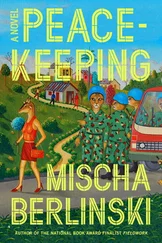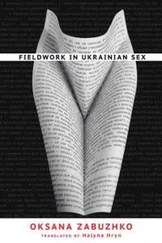Dr. Chester found Raymond's excitement to spread the Gospel touching, and reminiscent of his own passion as a young man. He laughed. "None of them know," Dr. Chester said.
Then the party changed ships and went by small French coastal steamer to Haiphong in northern French Indochina. The food on the steamer was unfortunately rather rich, with buttery French sauces, which combined with Laura's pregnancy and the rocking motion of the vessel to make her more than a touch queasy, so that she was very glad to arrive in Haiphong, where there was so much to do. Mrs. Chester, with her formidable talents for organization and her ability to command the respect of even the most cunning merchant, took charge of the provisioning. They needed to buy supplies sufficient for a mission of five years, and although the secteur français , where the missionaries stayed, was lovely, with its café-lined boulevards and shady banyan trees, it was better to buy from the Chinese merchants in the squalid harbor, which they visited in a rickshaw pulled by a swaybacked coolie. They bought sugar, paper, lead pencils, Bibles and hymnals by the dozen, medicines of every sort, canned meats, sardines, canned vegetables, canned pears, peaches, apricots, nectarines, and tangerines, wool blankets, bolts of cotton and wool, and thousands of tapered wax candles.
When the provisions had been acquired and safely stowed in two dozen large steamer trunks, the missionaries traveled four days by narrow-gauge railway into the southern heart of China's Yunnan Province. The lower-class carriages of the train had no toilets, and the Chesters instructed the Walkers that it was best not to look up and down the tracks when the train came to a halt. For the first time, the Walkers saw the emerald-green rice paddies and the banana trees and the palms: in the heat of the day, steam rose from the fields and the roofs of houses.
The party arrived after the long train journey in the Chinese provincial capital of Kunming, where, in order to accommodate Laura's pregnancy, Dr. Chester ordered the construction of a large sedan chair to be carried by six coolies. When Laura's pregnancy had been revealed to the entire traveling party, Dr. Chester and Mrs. Chester had smiled knowingly at one another. "It always happens first thing when a young couple gets out in the Mission Field," said Mrs. Chester.
"Usually happens shipboard," added Dr. Chester with a wink.
"God gives you a gift because you gave your life to Him," said Mrs. Chester, thoughtfully. "He gave us our first one just like you, the day we set sail for the Orient, more than forty years ago."
For the next two months, Laura was carried westward in the sedan chair, along narrow mountain paths. Because of the dangers of brigands, it was necessary for the missionaries to travel accompanied by a retinue of mercenary soldiers. Since the coolies who carried Laura's chair were opium addicts, every few hours they insisted that the caravan stop so that they could lie by the side of the road on their straw mats, pull out long bamboo pipes from their satchels, and smoke. The opium tended to make them hardy walkers but inattentive, and Laura was frightened, as her bearers sometimes closed their eyes and like packhorses dozed even as they marched along. Whenever they arrived at a small inn for the night, Laura thanked God for having delivered her safely this far.
The caravan mounted higher into the mountains, and stealthily the soldiers defected back toward China, leaving the party more and more isolated. The days grew colder, and Laura was grateful to Dr. Chester for the shearling coats he had insisted they have made for the ladies in Kunming. Along the road as they approached Tibet, they passed elaborately enrobed Buddhist lamas with enormous hats on their heads, chanting over and over, "Om mani padme hom." Laura asked Dr. Chester what they were saying, and Dr. Chester replied that the prayer, although widely used, was meaningless and sadly futile, but a demonstration of both the deep spiritual desire and capacity of the people, if only they knew to Whom they ought to direct their prayers. Raymond, for his part as he rode along toward Tibet, passed his days reciting in his own head sermon after sermon in which he told whoever would listen about the glorious vision he had had in France. With every footstep, Raymond was more moved by his own preaching.
Dr. Chester rode on his horse at the head of the caravan. To amuse himself along the journey he read the scores of symphonies, which he positioned under the pommel of the saddle, trusting his horse to know the route. While in the flatlands leading out of Kunming, the habit had struck the Walkers as innocuous, but when they approached the mountainous country of the headwaters of the Mekong and Yangtze rivers, both Raymond and Laura began to fear for Dr. Chester, as the rocky path grew narrower and the cliff alongside fell away more steeply. In many places the road itself, hardly wide enough for a horse under the best of conditions, had fallen away and the path was maintained only by the careful positioning of a rotting wooden board. Under ideal circumstances, every such makeshift bridge would have necessitated a stop and a careful examination of the soundness of the passage. But Dr. Chester seemed oblivious to the dangers, and indeed his excitement at the music he was reading seemed only to increase as the road narrowed. Then the Walkers began to fear for themselves, for Dr. Chester, by virtue of his position as rider of the lead horse, determined the pace of the entire caravan, and Dr. Chester's speed was largely governed by the subtle, unconscious signals he gave his horse in response to the tempo of the music that he studied. Nothing could distract him from his music, and the caravan flew heedlessly along those rocky heights. When they arrived at the squalid Chinese inn to spend the night, Mrs. Chester confronted her husband: "Mr. Chester, I insist for the sake of those that we have in our care, as well for my own safety, that tomorrow you pass your time with something adagio ."
For two months, Laura's world was the inside of her sedan chair. She grew accustomed to the sway of the chair up on the men's shoulders as they trudged along like beasts; and she memorized every detail of the thin wood floor and walls of woven bamboo. The windows were covered with thick woven curtains which she raised and lowered to protect herself from the harsh mountain rains and wind. After a week of travel, she was sufficiently habituated to the rhythmic motions of the chair that she was even able to take pen in hand and write letters to her sister. Laura had always been close to her sister, only three years younger than she, but now, separated by half a world, the last barriers of sisterly reticence tumbled and the letters became a clear reflection of her thoughts.* Laura wrote that as a young girl she had fantasized idly about the life of a princess, and now she was being toted across China princess-style. Yet after a week or two the novelty of the experience diminished, and she reflected that to the men carrying her she was merely baggage. The thought bothered her, and she discussed the matter one evening with Dr. Chester. "Are you not, my dear, carrying your baby just as these men carry you?" he asked. Laura admitted that she was, although she was uncertain precisely what Dr. Chester's point was: Dr. Chester had a way of making you see things in a new light without explaining anything. In the afternoons, with the heavy curtains closed, the sedan chair grew warm and the swaying made Laura sleepy. Travel, Laura wrote, seemed to be a matter of submission to an endless series of rocking and swaying motions: the ship on the ocean, the train passing through the endless tunnels of northern Indochina and over the high bridges with their views of the deep jungle gorges, and now being carried toward Bantang, the city on the Tibetan border where Dr. Chester had promised that the traveling, for the moment, would end, where she could wait for her baby to arrive. What a strange place to be born! thought Laura. By the time you read this, she wrote to her sister, I will probably have had a baby, and then it will be many more months before I can read your letters telling me how happy you are for me. So I better accept your congratulations now! she added, and then, overcome by a superstitious chill, knocked three times on the bamboo walls of the sedan, and wondered if bamboo was a kind of wood.
Читать дальше












